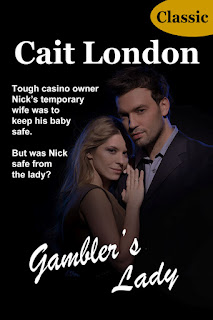Season of Truth
Please Note that I'm in blog template update, so hopefully this will look better soon.
Please Note that I'm in blog template update, so hopefully this will look better soon.
Author Chatter: Among the topics and conversations
that interested me this week was a blog post concerning Classic Romance.
With new readers out there, perhaps expecting different elements, it is
important to note the difference.
To me, a Classic Series Romance is lighter in
sensual weight than currently, or definitely romance. The hero is usually
strong “Alpha”, which means he thinks he rules the little secretary, etc. in
the relationship. Some great comedy romance was based on what “he” thinks.
When re-publishing a Classic, the typical question
is: Do I update it?
I did, if possible. Rotary “dial” phones are now
punch button cells, etc. In one particular Classic, click to read how I softened this hero....
.
Then the length of a novel came up, which
e-published is typically shorter. Hey, folks. We’re caught by the media, want
it fast, we do, yup.
Several writerly conversations I've had in the recent
weeks concern how much and if promotion actually helps. We’re almost past the
days of physical swag, i.e. sending out bookmarks, etc. but we still have
newsletters to our dedicated readerships. (BTW, when presenting in person or
meeting readers, every author should have something, i.e. a business card
whatever to hand out to people.) I’m using a simple yahoo subscription for Cait
London and I’m very careful not to overdo. My e-newsletters generally deal with
what’s coming up, changes, wrapped in a little easy chatter-type stuff.
A typical writer has a Twitter and a Facebook
page, a website and a blog. I jumped in and had 3, one for each facet of my
life. (I’ve now cut down to Daily or Not.) Then, there are the e-loops and
LinkedIn, Goodreads and Shelfari. Now there’s Pinterest. (How many Pinterest fans do I know? Let me count the ways….) Add that on to what a writer needs
to do—write—and it’s a lot of work/time. BTW, an author usually maintains several e-mail boxes, each with a different purpose.
Each writer has their favorite “running pack”. Some
people prefer Twitter over Facebook and vice versa. Some link between both. For
professional stuff, learning/sharing with others, I have 2 of those loops and 1
loop from a Novelists, Inc. Generally, each writer has several mailboxes at
different URLs, each for a specific need. You can write to me at mine.
A friend just noted that she wants her stories in
audio books. “But the learning curve….” she sighed wearily.
SAM’S STORY (I'm hoping to write more about Sam Knight's family, his brothers and sister. Sam tells his own story... and I love the male point of view.)
That took us back, and it was no easy chore to get
started in publishing our own. Since starting, the elements of e-publishing or
self-publishing in e-pub or paper, have created one big huge learning curve.
That learning curve changes as you look at it. Introduction of tablets,
androids, etc. changes cover demands, which were smaller. Now they are not. Thankfully, new methods and formatting software
have popped up.
The base advice now is to get a nice, clean starting document.
I note that most authors are focusing on what
works best for them. Many are pruning what does not work.
.
IMHO, there is no specific set trail to more e-book
or paper sales. Readers will usually buy favorite authors, so by brand. Then
each genre and/or subgenre has a devoted readership. Amazon, Barnes and Noble,
Smashwords, etc. all have different programs to raise promotion, i.e. Author
Central at Amazon. Smashwords has coupons. Kindleboards and Mobi offer tremendous
networking, as do other Boards.
Price and cover changes sometimes increase sales. Opinions
differ about Likes, Tags, and Reviews placed on the book’s URL. Again, what
works for one author, is not a sure trail for another.
But the general rule is that consistency pays off,
and definitely keeping busy online and networking. And here we go, back to
pruning what does not work, again per author.
If you have input for what works best in book
sales, what to "prune", please comment?





























